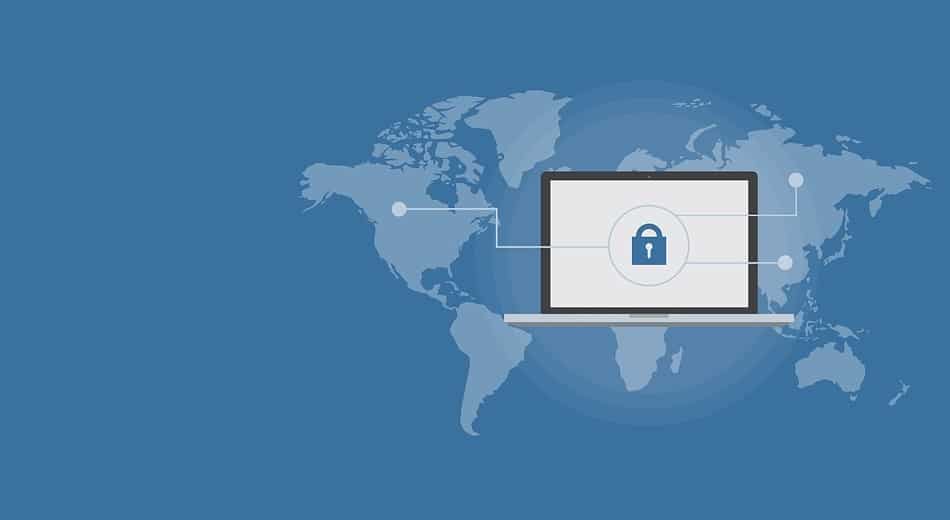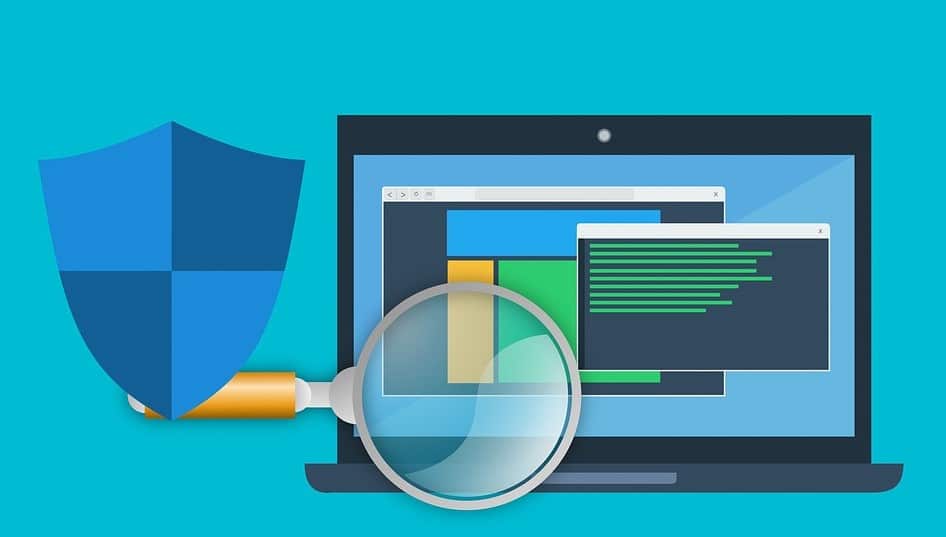Table of Contents
You have come to the right place if you were asking yourself this question, “what does a Firewall do?”. Simply put, it provides security against malicious people or traffic from attacking your network or stealing company information.
For more understanding of the main functions of a firewall, read the entire guide. I will discuss why it is used in homes and offices, types of firewalls such as stateful inspections firewalls and software firewalls, how it works, and if it’s a good idea to use it.
What is a Firewall?
This is a network security system that is designed to prevent or block unsolicited incoming network traffic or unauthorized access to a network or connected gadgets. It monitors and determine incoming and outgoing traffic then blocks or allows them depending on firewall security rules that have been set.
Firewalls were created to offer security for most organizations, homes, and even businesses since they are effective at what they do. It is worth noting that there is a network and personal computer application firewall.
All of them offer security though network firewalls are more common. Data and devices need to be protected from intruders’ attacks.

What Does a Firewall Do and Do You Need this Security Service As First Line of Defense?
The main goal of a firewall is to monitor incoming and outgoing network traffic so as to keep your network protected. It is an essential security system that you need to use in your home, business, or organization to keep your network safe. To feel even safer, check out the best network security software, or the top browsing security here. And, if you have more specific requirements, look here for a top gaming antivirus. In addition, we have covered most popular OS's out there, with our Windows 10 antivirus review and the best Mac protection post, to boot.
Below are the five major functions of a firewall.
1. MAC Filtering
Media Access Control (MAC) is a unique address identifier assigned to the personal computers’ network interface card (NIC). The MAC address of a specific device never changes and a network admin can use this device information to allow or eliminate access to the network.
2. Protect from Unauthorized Access
This is the main function of a firewall. It is a type of digital fence that you put on your network to help prevent the risk of authorized access. It filters traffic; a good one or trusted traffic is allowed to pass and a bad one is blocked depending on measures that you have put. This firewall is either a software or a physical device.
3. (Internet Protocols ) IP Filtering
It is also called packet filtering. Layer three firewalls carry regular inspection for known bad addresses. When they identify a bad IP address from a connected device, they blocked it.
4. Port Filtering
Routers are designed to filter Transmission Control Protocol Internet Protocol or TCP/IP layer packets based on set routing predefined rules which are also known as access control lists. It examines the access to the incoming ports, looking for malicious code and unwanted traffic that can infect your network or device.
Computer applications provide connection/s to different ports numbers for communication. A firewall is designed to allow or deny applications by opening or closing ports. For example, a network admin can close or open the ports 80 for web page incoming traffic or ports 25 for email traffic.
5. Content Filtering
This is one of the most valuable services of a firewall; it’s the ability to block specific contents that include hate, violence, or pornography. This is an effective parent-child program that will monitor web pages with banned words or word phrases.

What Does a Firewall Protect Against?
It is the first line of defense that keeps your network resources shielded from malicious cyber activity. It prevents external threat/s from getting access to your computer application/s in the first place.
Here are some reasons you need this security.
- Without a firewall, malicious network traffic may penetrate into your private network and either steal data or infect your machines. It blocks unsafe traffic and allows safe ones.
- It does packet inspection and verifies network traffic to ensure that sensitive information has not been transferred.
- Firewalls stop cybercriminals from taking advantage of a backdoor vulnerability in your network and accessing your personal information.
- A firewall protects your computer devices from being hijacked remotely whereby a hacker can connect and manage your multiple devices from another location.
- Some firewalls come with extra features such as parental features to block unwanted content from certain site/s. They are good at protecting your kids from malicious content.
- Firewalls offer protection from Email abuse; this is whereby a hacker uses malware to access your computer email and send thousands of spam emails to innocent victims.

Types of Network Security Firewalls and Why are They Used
- Hardware firewalls; they protect your entire network with a physical device. It sits between your local network and the internet doing inspection of all data to ensure everything is safe. They require little setup.
- Software Firewall; this is a program or service that is used to secure computers. The advantage of a software /security program is that it can be customized to meet the needs of the user.
- Network Firewalls; these are security devices that are used to inhibit unauthorized access to a network.
- Computer application Firewall; it acts as a defense for a local computer against malware.
- Next-generation firewalls; these type of firewalls secures organizations from external and internal threats. The next-generation firewall is a more advanced version and provides proper protection against modern threats and malicious software access to your network .
- Stateful Firewall; this is a protection system that is mostly used in business networks. The stateful firewall monitors the full state of network connections.
- Cloud-based firewalls; these firewalls use cloud solutions to deliver their services.
- Proxy Firewall; this firewall acts as a go-between for two systems that wish to communicate via a client. This is also known as gateway firewall or an application layer firewall.
- Hybrid firewalls; as the name implies, this firewall combines two or more types of firewalls in a single network. Examples of firewalls In practice, a firewall has garnered both praise and criticism as a result of its practical uses.
- Perimeter firewall; this firewall is a type of security application that protects the boundary between two networks, one private and one public. Its objective is to prevent the entry of undesired or questionable data into the network.
Why they are used?
Firewalls provide a barrier between a private network and the internet. It could be hardware or a piece of software installed on computers to help inhibit malware infection.
Firewalls analyze all network traffic and make a security decision to block or allow traffic to pass based on defined rules.

How does a Firewall Work?
Firewalls are normally hardware or software installed between the public network or internet and organizational networks. They monitor all the traffic connections flowing in and out of the organizational or private networks.
Intrusion Prevention and Detection Services
Firewalls work by using predefined security to perform packet filtering (packet filter firewalls). This sort of firewall verifies the source and destination IP addresses of the packets. If the packets match those specified in an "allowed" firewall rule, they are trusted to enter the network.
They do an inspection of each data packet to make sure they are safe from cyber attacks or threats.
Various types of firewalls such as stateful firewalls also check the source and destination port numbers on all packets to find out if they come from trusted sources.
Blocks Data Packets from Bad Destinations
Firewalls will detect data packets from bad destinations and will filter traffic out and drop them if they don’t pass the packet inspection, just like in packet filtering. Firewalls maintain a list of allowed and not allowed computer IP addresses known as the access list.

URL Filtering and Data Loss Prevention Services
The admin can configure the firewall to block or allow certain sites based on specific content or word phrases used. Also, they may be instructed not to allow the transfer of sensitive data that include credit card numbers, etc.
Gathers Intelligence from the Cloud
Firewalls have become complex with the advancement of technology. A new generation proxy firewall incorporates many advanced features to enhance cybersecurity.
If there is an attack identified by other proxy firewalls or network sensors at a certain website, that information regarding the culprit IP network address or range of IP addresses is shared among other firewall systems on the internet connections.
That way, it gains prior intelligence and puts those network addresses on higher alert, and traffic coming from those sources is blocked before accessing the network.

Is a Firewall Necessary?
Firewalls secure against unwanted internet incoming traffic which sometimes carries malicious content. Luckily, windows operating system has effective built-in security to help inhibit unwanted intrusion.
Dedicated security firewalls plus proxy server firewalls allow users to easily manage system ports, a gateway, computer application/s, server, web filter, and other types of security features. However, they may be a little too much for the average users because of how they are advanced in offering defense.
A consumer router firewall is enough for those with or using home network connections since they don’t require advanced defense.
It is worth noting that a software or hardware firewall serves as a preventive measure. If your devices or computer application/s, servers are infected, you need an antivirus to remove the threat.
FAQs
1. What are the 3 types of firewalls?
There are three types of firewalls: packet filters, stateful inspection firewalls, and application-level gateways.
Packet filters are the simplest type of firewall. They examine each packet that passes through the firewall and decide whether to allow or deny it based on a set of rules. Stateful inspection firewalls are more sophisticated than packet filters.
2. Does a firewall protect against viruses?
A firewall does not protect against viruses, but it can help to prevent unauthorized access to your computer. A firewall is a software or hardware that helps to protect your computer from unauthorized access from the internet.
3. Are firewalls still needed today?
Firewalls are still needed today, but they are not the only security measure that is necessary. Firewalls are important because they create a barrier between your internal network and the internet, which helps to protect your data. However, they are not foolproof and should be used in conjunction with other security measures.
4. Do you need a firewall at home?
A firewall is not always necessary at home, but it can be a helpful tool to protect your computer and data from unauthorized access. A firewall can be used to block incoming and outgoing traffic on your computer, which can help to keep your data safe from hackers and other malicious users. If you are not sure whether you need a firewall at home, you can consult with a security expert to help you decide.
5. Do firewalls protect against hackers?
If configured or implemented correctly, firewalls prevent all illegal outgoing and incoming connections to your computer operating systems (including those made by attacker attempting to steal your data and other vulnerabilities) and even allow you to specify which apps are allowed to connect to the internet, ensuring that you are never connected accidentally.


